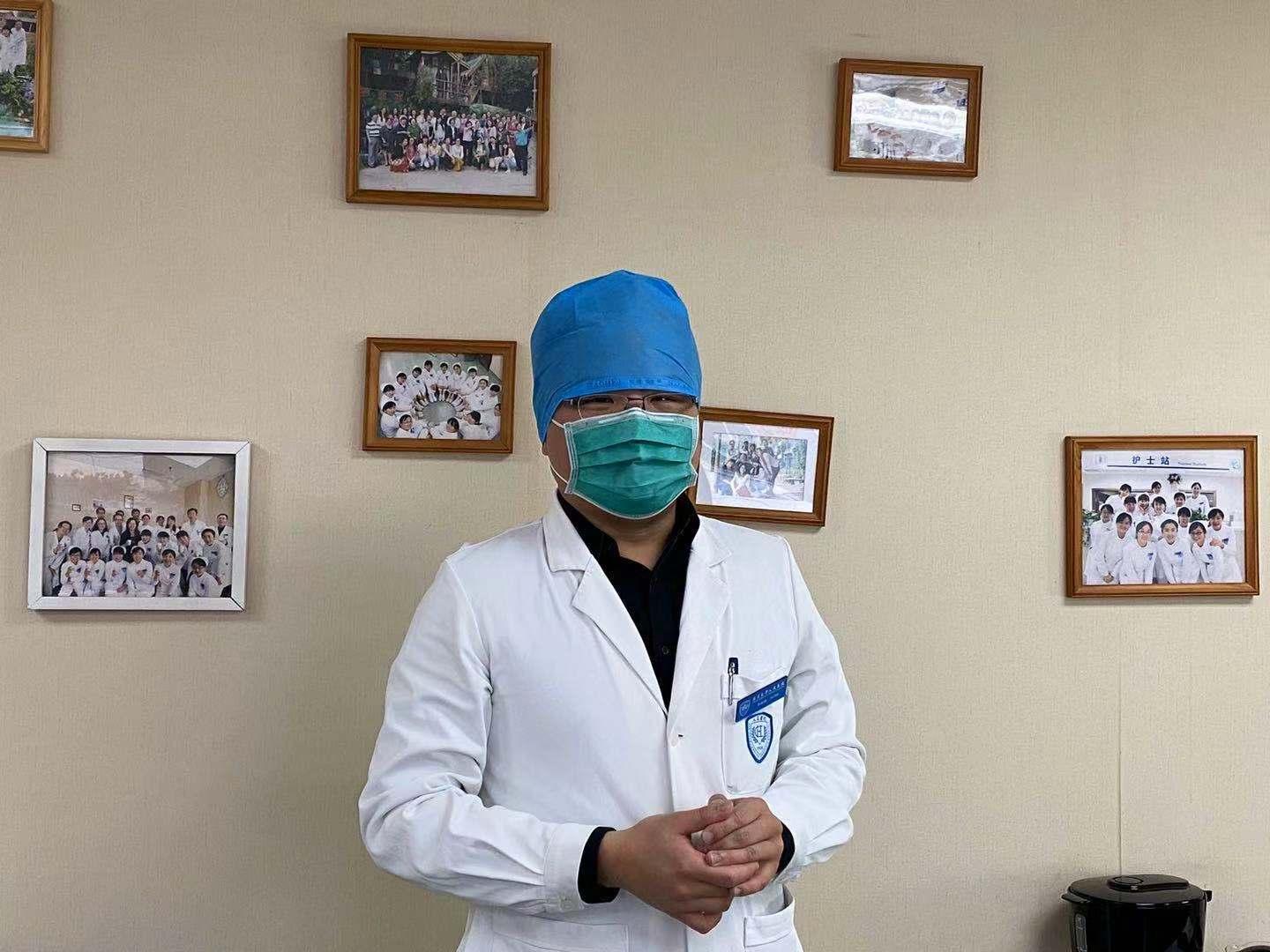by Xinhua writers Luo Xin and Lyu Qiuping
BEIJING, Feb. 11 (Xinhua) -- Malaysian doctor Lee Chongyou likes hotpot. But the 36-year-old in Beijing had to cancel his Lunar New Year hotpot party with his friends because of the spread of the novel coronavirus.
Lee, a cardiovascular physician, works at the Peking University People's Hospital in Beijing.
Recently, as usual, he arrives at the hospital by 8 a.m., finishes the handover with his night shift colleagues, and starts touring around the wards. The only thing different is that he, wearing a protective cap and a mask, keeps his distance from the patients while making inquiries.
While many foreigners have been evacuated from China amid the spread of the virus, many others like Lee choose to stay, fighting side by side with Chinese people against the epidemic.
Lee was born into a doctor's family in Kuala Lumpur. He came to China to study medicine at Peking University in the second half of 2003, when the severe acute respiratory syndrome (SARS) had just killed hundreds of people and infected thousands more.
"Many professors often mentioned the horrible virus and some people still wore masks," he recalled.
After 10 years' study, he graduated and started working in Beijing. He never expected he would encounter an epidemic outbreak like SARS himself.
The number of confirmed cases of novel coronavirus infection on the Chinese mainland had reached 42,638 by the end of Monday, and 1,016 people had died of the disease, national health authorities said Tuesday.
Lee does not plan to retreat. As he puts it, a doctor's duty is to look after the patients, give them the best care and see them recover.
"As long as the patients need me, I will be on duty," he said.
Lee's parents back in Malaysia are worried about him, but his brothers and sisters who are also doctors have comforted them.
"They tell my parents as long as I protect myself well, it's no big deal," he said with a smile.
The hospital where he works now has strict measures to reduce cross-infection, including canceling all seminars, measuring body temperatures at the entrance and providing takeaway services in the canteen to avoid gathering.
The community where he lives in the northern part of Beijing is also guarded with body temperature checkers, and no longer allows couriers or food deliverers to enter.
On the gate of each residential building, there is a reminder advising residents to avoid parties, frequently wash their hands, increase ventilation, wear masks when going out, and carry out self-quarantine and observation if returning from other parts of the country.
"At present, there are no confirmed cases in the community. I think it is these necessary management measures that have worked," he said.
According to Lee, many of his foreign doctor friends, including those from Japan and the United States, have also stayed in Beijing.
Lee said China has seen substantial development in medicine and many other aspects, which gives him confidence that victory will be achieved against the epidemic.
However, Lee is concerned about his colleagues who rushed to the front line to support Wuhan, the epicenter of the virus outbreak, in central China's Hubei Province.
More than 10,000 medical workers across the country have been sent to Hubei, including over 400 from Lee's hospital.
"They are all highly skilled doctors. We believe that with their concerted efforts, we will be able to overcome this epidemic and see them return safely," he said.
Lee has been to Wuhan three times for clinic consultations and seminars and was very impressed by the city.
"It's a beautiful city. I like the resorts like the Yellow Crane Tower, or Huanghelou, and the 'reganmian' noodles, and the crayfish are yummy," he said.
Lee still misses hotpot. "When the epidemic is over, I want to have a hotpot party with my friends and returned colleagues."




 A single purchase
A single purchase







